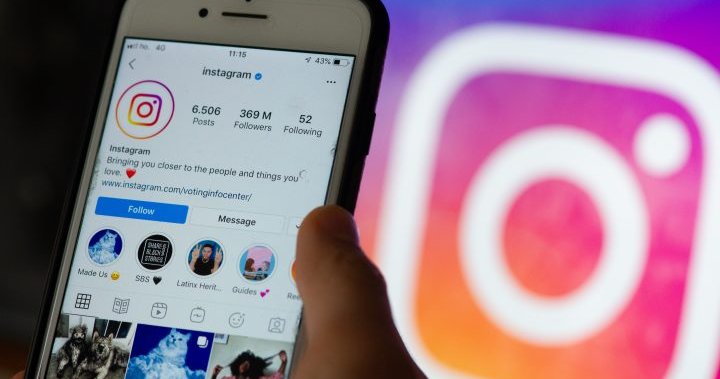
Four ways parents can help teens safely navigate Instagram
Global News
Experts say open lines of communication, age limits and if necessary, activity monitoring are some steps parents can take to help kids navigate the dangers of social media.
For many parents, revelations this week from whistleblower Frances Haugen showing internal Facebook studies of the harms of Instagram for teenagers only intensified concerns about the popular photo sharing app.
“The patterns that children establish as teenagers stay with them for the rest of their lives,” Haugen said in Senate testimony Tuesday.
“The kids who are bullied on Instagram, the bullying follows them home. It follows them into their bedrooms. The last thing they see before they go to bed at night is someone being cruel to them,” Haugen said. “Kids are learning that their own friends, people who they care about, are cruel to them.”
So, what can you do to protect your kids? Experts say open lines of communication, age limits and if necessary, activity monitoring are some of the steps parents can take to help kids navigate the dangers of social media while still allowing them to chat with peers on their own terms.
Ever wonder why 13 is the age kids can be on Instagram and other social media apps? It’s because the Children’s Online Privacy Protection Act went into effect in 2000 _ before today’s teenagers were even born (and when Facebook cofounder Mark Zuckberg was just a teen himself, for that matter).
The goal was to protect kids’ online privacy by requiring websites and online services to disclose clear privacy policies and get parents’ consent before gathering personal information on their kids, among other things. To comply, social media companies have generally banned kids under 13 from signing up for their services, although it’s been widely documented that kids sign up anyway, either with or without their parents’ permission.
But times have changed, and online privacy is no longer the only concern when it comes to kids being online. There’s bullying, harassment, and, as Facebook’s own research has shown, the risk of developing eating disorders, suicidal thoughts or worse.
In her testimony, Haugen suggested raising the age limit to 16 or even 18. There has been a push among some parents, educators and tech experts to wait to give children phones _ and access to social media _ until they are older, such the “Wait Until 8th” pledge that has parents sign a pledge not to give their kids a smartphone until the 8th grade. But neither social media companies nor the government have done anything concrete to increase the age limit.


















